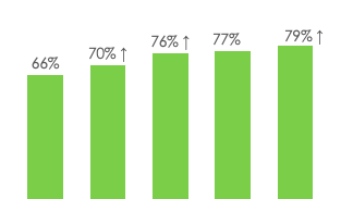A recent high-stakes card game between satellite TV rivals DirecTV and EchoStar in the Chapter 11 bankruptcy case of Space Systems Loral ultimately may stick DirecTV customers with a $25 million tab.
The saga began when New York City-based Space Systems Loral (SS/L) ran into problems earlier in the year, as satellite orders continued to dwindle and income ran out. In the third quarter, the company was forced to seek protection under U.S. bankruptcy laws.
Looking to salvage the company’s key operations, Loral chairman Bernard Schwartz offered rival Fixed Satellite Services (FSS) company Intelsat five satellites, most of which are in orbit, for $1 billion. He hoped to then keep Loral’s satellite manufacturing assets, several international satellites and some spectrum.
The seemingly tidy solution quickly became entangled due in part to GM Hughes DirecTV’s status as a Loral customer. DirecTV had contracted Loral to build as many as four satellites over the next several years, including its much-anticipated 7S spot beam satellite, which is due in December. This is the bird that is promised to dramatically ramp up DirecTV’s local TV services and add capacity for more HDTV channels early next year.
Perhaps sensing an opportunity to trip up a competitor, EchoStar chairman Charlie Ergen entered the proceedings as an unsolicited bidder for some of Loral’s satellite assets, including the 7S and six North American satellites that Intelsat was trying to acquire.
Ergen has been known to use his company’s legal division as a competitive tool, and measuring its success at getting both vendor DirecTV and Intelsat to pay significantly more for the satellite assets they ultimately acquired — his legal team came through again.
The final result was reminiscent of EchoStar’s proposed purchase of GMH during 2001-2002, when even though he lost the ultimate merger bid, Ergen succeeded in gaining strategically important information about Hughes’ companies, while helping to slow the progress of a major competitor.
The end result of the Loral maneuver was much the same. Intelsat ended up paying more for the numerous satellites it purchased.
DirecTV, which had paid $121 million of the $140 million cost of the 7S satellite before Loral’s filing for bankruptcy protection in July, ended up offering $25 million more to fend off EchoStar.
On a positive note, as of late October, everyone involved in the bankruptcy proceedings, including the Loral secured creditors, got something of what they wanted. Loral got what it wanted in the sense that one part of the company keeps operating, and secured creditors received at least some compensation. EchoStar didn’t get the birds it wanted to build its constellation, but it did cause its competitors, DirecTV and Intelsat, to pay much more for their own assets. And both Intelsat and DirecTV are able to proceed as planned.
Loral came away from the process with five remaining international satellites and the associated spectrum, and all ground operations facilities, as well as its data and network services business. DirecTV/GMH emerges with one satellite being readied for completion in the high-bay at Loral, as well as three more satellites on order, and an option for a fifth satellite.
Intelsat, as the purchaser of the bankruptcy assets, leaves the deal with five new satellites and the associated North American spectrum, which eventually could be used for direct-to-home services in some fashion.
As for retailers and DirecTV subscribers, EchoStar’s dealings could mean higher prices on hardware or services, as DirecTV tries to cover the additional payment it will be forced to make. More likely, it will create a longer payback period and additional debt burden for DirecTV and Intelsat, while EchoStar continues to reduce its own debt load.
Meanwhile, the fact that Loral will survive to build more satellites will boost the competition among satellite builders. But this value to the CE industry remains obscure, for now.
Ironically, the transaction points out the continued competitive dynamic at play in the direct-to-home satellite industry — something that those who opposed the EchoStar/DirecTV merger said would disappear, and drive consumer prices higher.












